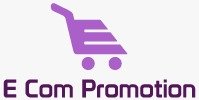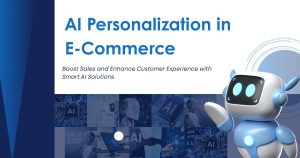The Best SEM Tools to Supercharge Your Digital Marketing Strategy

Search Engine Marketing is one of the best ways to increase your visibility online, drive targeted traffic and exclude your rivals. But it is not easy to manage Sem effectively without the right equipment. From keyword research to performance tracking, SEMS can automate equipment processes, simplify workflows and provide insight to help you make informed decisions.
When hundreds of equipment are available, finding your marketing goals can be difficult. In this post, we will highlight the best tool and explain how to change your campaigns.
What is SEM and Why Do You Need Tools?
SEM involves using paid advertising (like Google Ads) to increase your website’s visibility on search engines. Unlike SEO, which focuses on organic rankings, ensures your content appears in front of your audience through paid channels.
But running SEM campaigns requires detailed planning, optimization, and data analysis. That’s where SEM tools come in. They help:
- Identify high-performing keywords
- Monitor ad performance
- Analyze competitors’ strategies
- Maximize return on investment (ROI)
Below, we’ve outlined the best SEM tools for every step of your marketing strategy.
Keyword Research Tools
1. Google Keyword Planner
Why it’s great
Google Keyword Planner is the gold standard for keyword research, and it’s completely free. It helps you identify popular search terms, understand search volume, and estimate costs per click (CPC). This tool is must-have for creating data-driven campaigns.
Key features:
- Discover keyword ideas based on topics or your website’s URL.
- Forecast keyword performance with estimated clicks and impressions.
- Find local keywords for geo-targeted campaigns.
Best for: Beginners and businesses on a tight budget.
2. SEMrush
Why it’s great
SEMrush is a powerhouse SEM tool that goes beyond keyword research. It offers in-depth analysis of competitors’ keywords, ad copies, and strategies. You can also track your rankings, backlinks, and overall marketing performance.
Key features:
- Keyword Magic Tool for finding long-tail and high-competition keywords.
- Competitive analysis reports to uncover gaps in your strategy.
- Advertising research to analyze rival campaigns.
Best for: Advanced marketers who want a full-funnel solution.
3. Ahrefs
Why it’s great
Although Ahrefs primarily focuses on SEO, its keyword capabilities make it a valuable asset for SEM campaigns too. You can gain insights into search trends, keyword difficulty, and click-through rates (CTR) to optimize your ad spend.
Key features:
- Identify competitor keywords with the Content Gap tool.
- Analyze keyword difficulty before bidding.
- Track SERP features like featured snippets and ads.
Best for: Marketers looking for a dual-purpose SEO and SEM tool.
Ad Creation and Testing Tools
4. Google Ads Editor
Why it’s great
Google Ads Editor is a desktop application that simplifies campaign management. It allows you to draft, edit, and iterate multiple ads quickly before publishing them. The tool syncs all changes seamlessly, ensuring error-free campaigns.
Key features:
- Make bulk edits to campaigns in minutes.
- Preview ads and extensions before they go live.
- Work offline to save time during high-traffic periods.
Best for: Businesses managing large-scale SEM campaigns.
5. AdEspresso
Why it’s great
Ad creation and testing can feel like a guessing game without the right insights. AdEspresso solves this with A/B testing for Google, Facebook, and Instagram ads. It helps identify which ad copy, image, or headline drives the best results.
Key features:
- Conduct unlimited A/B tests to find the best-performing ads.
- Visual dashboard to understand analytics at a glance.
- Integration with CRM tools for lead management.
Best for: Small businesses and agencies testing different ad creatives.
Tracking and Analytics Tools
6. Google Analytics
Why it’s great
No SEM strategy is complete without Google Analytics. It’s a free tool that tracks traffic, user behavior, and conversions driven by your SEM campaigns. The key is to link it with your Google Ads account for enhanced insights.
Key features:
- Set up goals to track specific user actions, like form submissions.
- View channel breakdowns of paid vs. organic traffic.
- Discover high-converting landing pages for future ad campaigns.
Best for: Businesses of all sizes looking to track ROI effectively.
7. SpyFu
Why it’s great
Want to know what your competitors are up to? SpyFu provides detailed insights into their keywords, ad spend, and strategies so you can stay one step ahead. It’s like having a window into their SEM approach.
Key features:
- Analyze competitors’ PPC campaigns for strategy inspiration.
- Discover keywords your competitors are bidding on.
- Monitor paid and organic ranking trends.
Best for: Marketers focusing on competitor analysis.
8. Marin Software
Why it’s great
Built for enterprises, Marin Software simplifies managing campaigns across multiple platforms. It collates performance data from Google Ads, Microsoft Ads, and social channels into one place, saving hours of manual work.
Key features:
- Automated bidding with AI recommendations.
- Unified dashboard for cross-channel performance.
- Advanced reporting with data visualization.
Best for: Larger organizations and agencies managing multi-channel campaigns.
Social Platforms for SEM
In addition to Google Ads and Microsoft Ads, there are several other social platforms that can be used for SEM campaigns. These include Facebook Ads, LinkedIn Ads, Twitter Ads, Instagram Ads, Pinterest Ads and more.
Each of these social platforms has its own unique user base and ad formats. For example, Facebook is known for its highly targeted ads while LinkedIn is popular for B2B marketing.
It’s important to consider your target audience and the platform they are most likely to use when deciding where to run your SEM campaigns.
Budgeting for SEM
One of the key aspects of running a successful SEM campaign is budgeting. It’s important to allocate enough funds to reach your desired goals but also
9. Facebook Ads Manager
Why it’s great
Facebook Ads Manager enables businesses to run SEM campaigns that combine search engine marketing with targeted social media reach. By incorporating demographic targeting based on age, interest, and behavior, it complements traditional platforms like Google Ads.
Key features:
- Create and manage campaigns across Facebook and Instagram.
- Leverage Audience Insights to refine targeting.
- Custom ad formats like carousel ads for better engagement.
Best for: Brands with a strong social media presence.
Reporting and Optimization
10. Optmyzr
Why it’s great
Optimizing ad campaigns is crucial for a positive ROI. Optmyzr uses AI-driven optimization to automate tasks like bid adjustments, budget pacing, and performance monitoring.
Key features:
- One-click optimization for ads, bids, and budgets.
- Rules-based automation workflows to save time.
- AI insights for spotting potential opportunities.
Best for: Experienced marketers managing high-budget campaigns.
Picking the Right SEM Tool for Your Business
Choosing an ideal Sem tool depends on your specific goals, budget and expertise. For beginners, free equipment such as Google provides keyword planners and analyzes valuable insights without advance costs. Advanced outstanding campaigns may prefer multifunctional platforms such as semarsh or marine software to maximize efficiency.
Each time you start, the right equipment will simplify the workflow, reveal development opportunities and ensure better results for your SEM campaign.
Take Your SEM Campaigns to the Next Level
SEM is one of the most effective ways to grow your brand online, but success depends on the tools you use. Whether your focus is on keyword research, ad creation, or performance tracking, incorporating these SEM tools into your strategy will give you a competitive edge.
Still feeling overwhelmed? Start with Google Keyword Planner or sign up for a free SEMrush trial to explore your options. Once you find a tool that works for you, the sky’s the limit.
Happy optimizing!
Additional Resources
- Google Keyword Planner.
- SEMrush: https.
- Moz Keyword Explorer.
- Ahrefs Keyword Explorer.
- WordStream’s Free Keyword.
Conclusion
It is important to include SEM tools in your marketing strategy to succeed in competing online scenario. Using these devices you can customize your promotions, track performance and stay in front of the game. Remember to research and experiment with different devices to find the best working people for your specific needs and goals. Stay up to date with industry trends and algorithm changes to use these devices effectively. Finally, by taking advantage of the SEM tool, you can improve the rankings of the search engine, run more traffic on your site and eventually increase conversion and revenue to your business. Start detecting and implementing this valuable equipment today! Settlement





